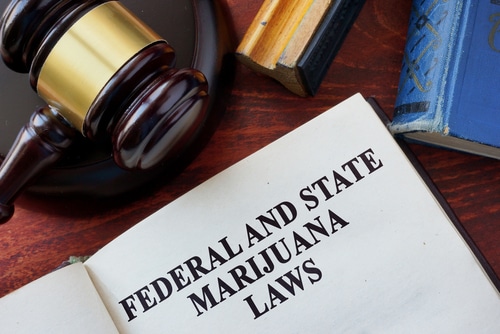The cannabis industry is booming. The number of marijuana users has increased steadily since in the past decade, going from 28.7 million in 2009 to 43.5 million in 2018. In 2018, the industry posted $10.4 billion in income, and by 2019, that number shot up to $52 billion. As you’d expect in any booming industry, entrepreneurs are rushing to capture their share of the market. It’s a highly promising venture, given that 90% of dispensaries report that they’re profitable. There’s a lot of money to be made, but you can’t afford to rush into it. In addition to the standard requirements for starting a business—getting a tax ID number, sales tax permit, and general business license, for example—you need to get the appropriate cannabis license for your state.
What Are the Licensing Requirements?
 In every state that has legalized the sale of marijuana, there are different rules for licensing. You’ll need to check the laws in your state to find out whether you need to go through the Secretary of State, a different state department, or a local licensing agency to acquire a cannabis license.
In every state that has legalized the sale of marijuana, there are different rules for licensing. You’ll need to check the laws in your state to find out whether you need to go through the Secretary of State, a different state department, or a local licensing agency to acquire a cannabis license.
What Is the Purpose of Licensing?
Some marijuana dispensaries balk at the idea of having to get a special marijuana license and pay extra taxes—as much as 37% in some states—but there are very good reasons for these laws to be in place.
Licensing allows states and municipalities to oversee the purity and quality of the products for sale. Drugs on the black market have been found to contain dangerous chemicals, from embalming fluid to fentanyl.
State or local licensure means that you can only sell cannabis products that have gone through a government-approved testing process. That certainty may cost more, but it protects your customers and can keep you from getting sued.
What Happens If You Don’t Have a Cannabis License?
Selling marijuana products without a license can get you into a lot of legal trouble. How much trouble and who will come after you if you’re found in violation varies by state.
Fees
In California, for example, unlicensed marijuana sellers may face up to six months in jail and/or a fine of as much as $500, as well as possible civil penalties as high as three times the licensing fee.
Search and Seizure
California has been working hard lately to stop unlicensed dispensary operations, especially in Los Angeles. The black market for cannabis is epidemic throughout the city, and buyers are at risk.
As a result, if local authorities find someone operating an unlicensed dispensary, police can go in and seize all merchandise and cash belonging to the dispensary or its owner. In one week in late 2019 alone, Los Angeles police confiscated $8.8 million worth of cannabis products and $129,000 in cash from unlicensed dispensaries.
Why Timing Matters
Getting your cannabis license isn’t something you want to put off. Many states have restrictions on the number of licenses that they’re willing to distribute.
When Illinois legalized recreational cannabis for adults in January 2020, the state made only 75 dispensary licenses available. Existing medical marijuana dispensaries, legal since 2014, were also allowed to apply for recreational licenses and did not count toward the 75 new stores.
Check with your state and local authorities to find out how many licenses are currently available in your area. If there are any to be had, secure one as soon as possible. Your business might depend on it.


